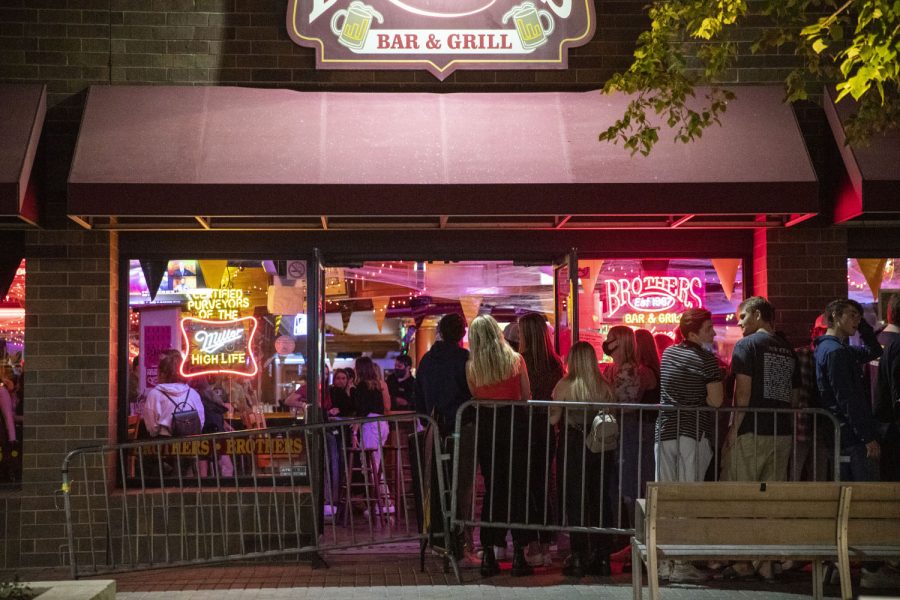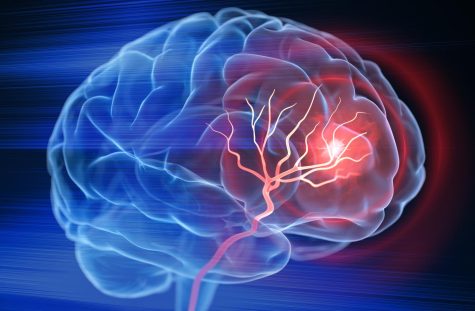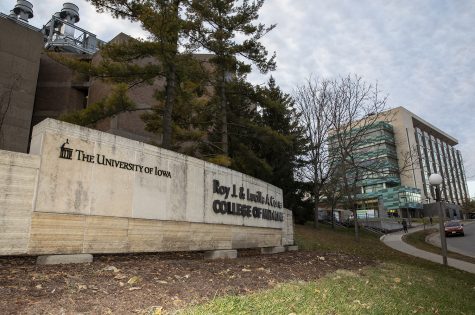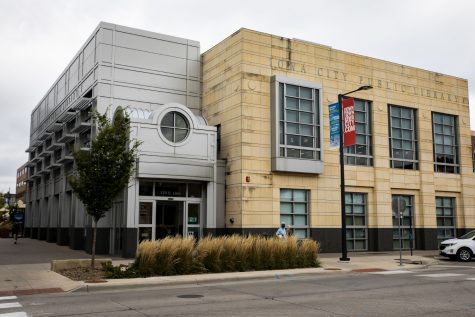Guest Opinion | The Doctor is In: Brain Biology Behind an Alcohol-Induced Blackout
High levels of alcohol can impair your memory of events from a night of drinking in episodes called blackouts.
Brother’s Bar and Grill is seen on Thursday Oct. 8, 2020, the first weekend of bars reopening. Governor Kim Reynolds released a proclamation last Friday allowing bars to reopen in Johnson and Story counties on Monday, Oct. 5. Many bar-goers were out without masks on and there was little social distancing in lines.
January 26, 2021
Have you or your friends ever gone out drinking and woke up the next morning to a half-eaten pizza you don’t remember ordering? If so, you’re not alone. As Barnet et al. found in a 2014 study, more than 50 percent of college students who reported drinking alcohol have experienced at least one “blackout” event. An alcohol induced blackout is an episode of impaired memory formation from heavy alcohol consumption without a loss of consciousness —why you can order pizza without remembering it the next morning.
The biology behind alcohol-induced blackouts is fascinating, but first requires a basic understanding of memory and the effects of alcohol on the brain.
A person’s memory processing starts with short-term memory. This is where we store sensory information from the last 15-30 seconds in the prefrontal cortex—the main site of planning, personality, and decision making in the brain. To continue remembering information longer
than a few minutes, we must transfer that information into long-term memory for storage. This is accomplished in the hippocampus — a brain region critical for contextualizing sensory information with our past experiences from short-term memory and then consolidating the messages into chunks that we can store and later recall.
Whether you are slamming shots of Hawkeye vodka or cracking open another Busch Lite, ethanol molecules from every type of alcoholic drink work the same in the brain. Alcohol works by activating inhibitory receptors on neurons, called GABA receptors, leading to ‘depressed’ nervous system function. Blackouts happen when high alcohol levels depress neurons in our hippocampus, interrupting long-term memory storage, thus making it difficult or impossible to remember the night before. Making matters worse for our memory, as alcohol is processed in other parts of our body, it can steal energy from neurons in the prefrontal cortex and hippocampus, further inhibiting our ability to store memories.
Research has found that most blackouts start occurring at a blood alcohol concentration (BAC) of 0.20 but can start at concentrations as low as 0.14. Guessing your BAC is difficult, and is almost impossible to know if you are currently experiencing a blackout; however, if you are with friends, tests like asking them to remember a random word and checking a few minutes later can be a rudimentary test to gauge if they are in a blackout or not.
Although one or two blackouts may not cause permanent and/or lasting damage, and it may make for an interesting story—or lack thereof. Serious adverse events like risky behaviors or negative interactions with law enforcement may increase substantially in a blackout. If you choose to drink, consider alternating drinks with water (for your health and your wallet!), and having a designated driver in place so you can drink safely and have a night to remember with your friends the next morning.
—Nathen Spitz, MD Candidate, Class of 2023













